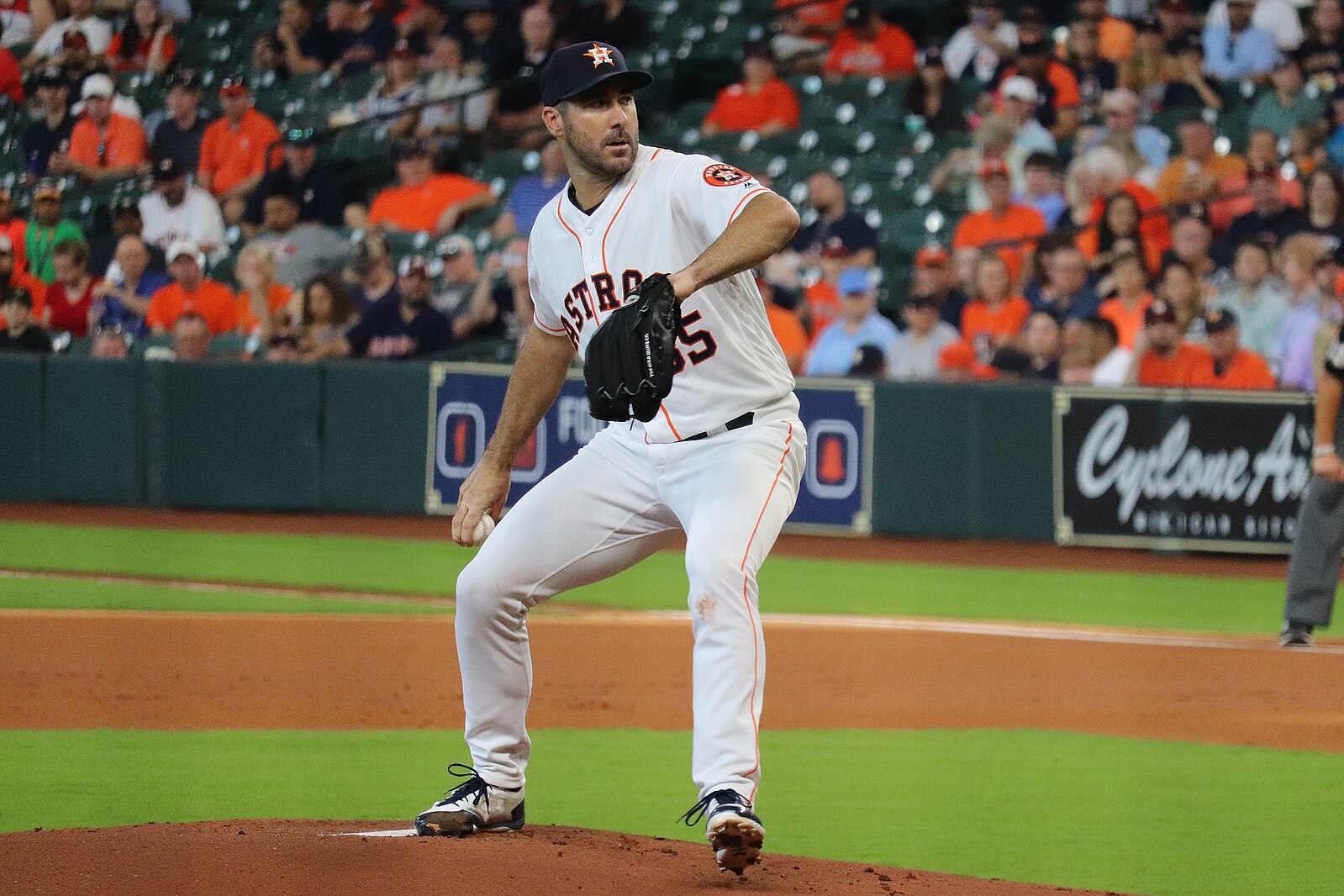Justin Verlander’s Struggles Reaching Critical Point, Astros May Consider Bullpen Move
Time is running out for Justin Verlander to course-correct a troubling stretch that’s resulted in an inflated 9.68 ERA across four starts since returning from the injured list.
The nine-time All-Star and three-time Cy Young winner has performed miserably after missing close to three months due to neck stiffness, and the veteran right-hander’s woes took another devastating blow in Sunday’s 12-6 defeat to the Arizona Diamondbacks.
In arguably one of the worst starts of his 19-year big-league career, Verlander surrendered eight runs on eight hits, including a pair of home runs – both from Pavin Smith, who hit a grand slam in the third inning. He also allowed a walk and departed after the third without recording a strikeout, doing so for only the fifth time in 523 career starts.
Of the eight hits Verlander gave up, seven produced an exit velocity of at least 96 mph, with five exceeding 99.5.
The 41-year-old hurler needed 75 pitches (46 strikes) to limp through three innings of work at Minute Maid Park. He leaned heavily on his four-seamer, using it over 50 percent of the time. Though its velocity was up half a tick, averaging 94.1 mph, it was responsible for most of his damage surrendered – including both of Smith’s homers.
Without his pinpoint command, creating swing-and-miss was a massive struggle for Verlander, who induced just four whiffs on 32 swings against the D-backs lineup.
“I felt good physically, but obviously, the results were atrocious,” Verlander told reporters post-game, including MLB.com’s Brian McTaggart. “Guys hit a lot of good pitches, though.”
Verlander surrendered eight runs for the first time in his Astros career, which began following a blockbuster trade in 2017. In that same season, he was tagged for nine runs and 11 hits – including a trio of home runs – over four innings during his third start with the Detroit Tigers.
This season, the future Hall-of-Fame pitcher owns a 5.30 ERA and 5.10 FIP with 63 strikeouts in 14 starts, accounting for 0.3 fWAR.
“I found myself behind a lot because I wasn’t able to land [my offspeed pitches], and they had some damage on some fastballs because of that,” Verlander said. “I thought the fastball was better today overall. The offspeed was a bit inconsistent location-wise, which got me in a little bit of trouble.”
Despite Sunday’s blowout loss to Arizona, Houston enters Monday’s off-day leading the AL West, holding a 4.5-game lead over the second-place Seattle Mariners. With only 19 games remaining, the division still appears to be theirs to lose.
But one question that must be settled between now and this season’s end is what’ll become of Verlander if the Astros make the playoffs?
“I would not bet against someone with that pedigree and how good this guy’s been for a very long time,” manager Joe Espada said. “I just know that he’s going to go back and work and try to figure some stuff out. This guy has been really good for a very long time. We talked about a couple of things there in the dugout, some things he felt, some things he saw. He was looking at video. We have to go back to the drawing board and get him going. We need him.”
As the regular season winds down, Verlander only has a few more opportunities to right the ship to convince Houston he deserves to be part of the club’s potential playoff starting rotation, which will likely shrink to four starters.
Still, it may be challenging to push himself into that conversation, given the promising post-All-Star results the Astros have received from Framber Valdez, Hunter Brown, Ronel Blanco, Yusei Kikuchi (acquired via trade from Toronto) and Spencer Arrighetti – outside of his latest start, at least.
If that proves true, it’ll be interesting to see if Houston considers moving Verlander to the bullpen.
-Thomas Hall
Twitter: @Hall_Thomas_
Photo: Jeffrey Hayes. This file is licensed under the Creative Commons Attribution 2.0 Generic license.
